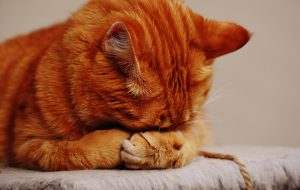Cats are known to be finicky eaters, and there are many possible reasons why a cat might not eat. Some common reasons include illness, stress, changes in environment or routine, and certain medications.


If a cat is sick or experiencing pain, they may not have much of an appetite. Cats are instinctively driven to hide signs of illness or weakness, so a loss of appetite may be one of the first signs that something is wrong.
It’s important to pay attention to other signs of illness, such as lethargy, vomiting, diarrhea, changes in behavior or appearance, or any other unusual symptoms. If a cat is showing signs of illness, it’s important to consult a veterinarian to determine the cause and provide appropriate treatment.
Cats can also become stressed or anxious, which can interfere with their ability to eat. Changes in a cat’s environment or routine, such as moving to a new home or the introduction of a new pet, can cause stress and lead to a loss of appetite. Cats are sensitive to changes in their environment, and they may become anxious or fearful if they are not handled carefully and with consideration for their needs. It’s important to provide cats with a calm and stable environment, and to make any changes slowly and carefully to minimize stress.
Certain medications, such as antibiotics, can cause a cat to lose their appetite. Some medications have side effects that can interfere with a cat’s ability to smell or taste their food, which can make them less interested in eating. In addition, some medications can cause nausea or gastrointestinal upset, which can further decrease a cat’s appetite. If a cat is on medication, it’s important to follow the veterinarian’s instructions carefully and to monitor the cat for any changes in appetite or other side effects.
Cats can also develop food allergies or intolerances, which can cause them to avoid certain types of food. Food allergies and intolerances can be difficult to diagnose, and they may require specialized testing and a carefully managed diet.
If a cat is not eating, it may be necessary to try offering them different types of food to find something that they will eat. It’s also important to ensure that the cat has access to fresh water at all times, as dehydration can further decrease their appetite and make them more vulnerable to illness.
If a cat is not eating, it’s important to pay attention to their behavior and overall health. In some cases, a loss of appetite can be a sign of a more serious medical condition, and it may be necessary to consult a veterinarian. It’s also important to provide the cat with a high-quality diet and to make sure they have access to fresh water at all times.
Cats that are not eating may need to be offered food and water by hand, or may need to be fed through a feeding tube if they are unable to eat on their own. It’s important to work closely with a veterinarian to determine the underlying cause of the cat’s lack of appetite and to provide appropriate treatment and support.






